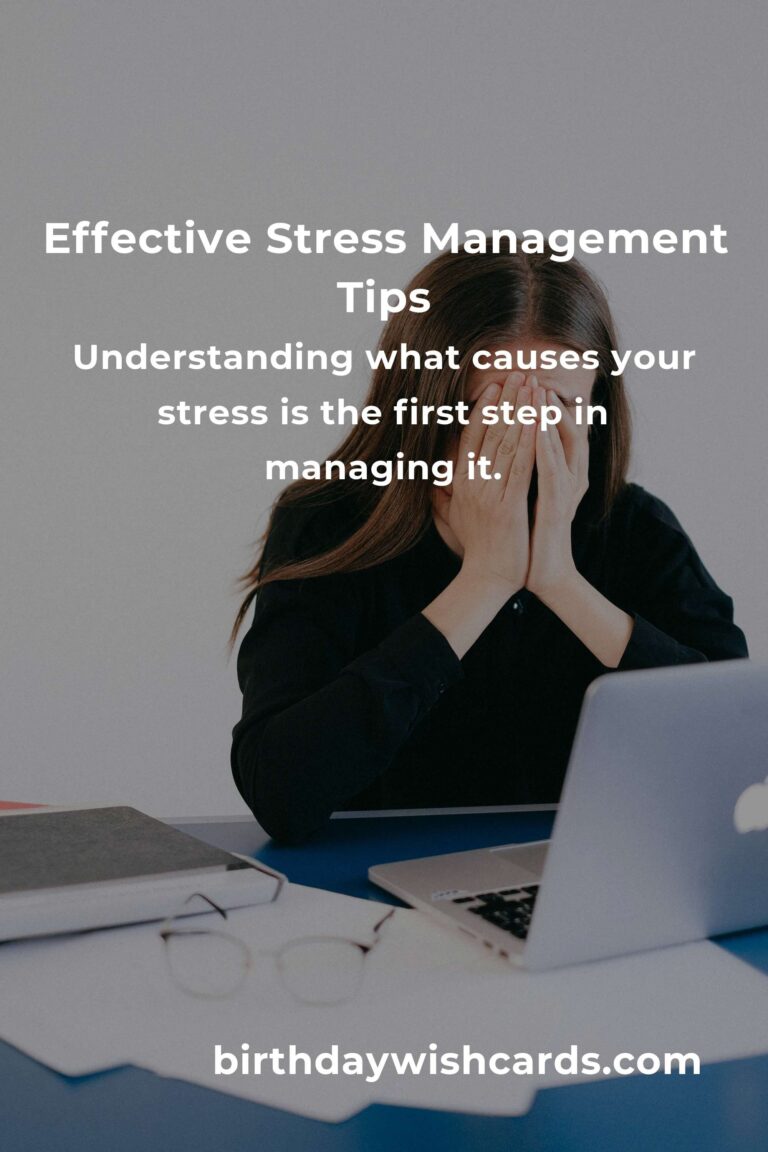
Stress has become an inevitable part of modern life. It affects everyone, from students to professionals, and can have serious consequences for both physical and mental health. However, effective stress management can help mitigate these effects and lead to a healthier, more balanced life. Here, we outline 29 tips to create a comprehensive stress management roadmap.
1. Identify Stress Triggers
Understanding what causes your stress is the first step in managing it. Keep a journal to note when you feel stressed and what triggers it.
2. Set Realistic Goals
Overloading yourself with unrealistic goals can increase stress. Be sure to set achievable targets and prioritize tasks according to importance.
3. Practice Mindfulness
Mindfulness techniques, such as meditation and yoga, can help you remain grounded and calm amid life’s challenges.
4. Exercise Regularly
Physical activity reduces stress hormones and increases endorphins, the body’s natural mood lifters.
5. Maintain a Balanced Diet
A balanced diet can enhance your mood and energy levels, helping you cope better with stress.
6. Get Enough Sleep
Quality sleep is crucial for stress management as it helps restore the body and mind.
7. Learn to Say No
Don’t take on more than you can handle. Learning to say no can prevent unnecessary stress.
8. Practice Deep Breathing
Deep breathing exercises can instantly reduce stress and promote relaxation.
9. Connect with Others
Social support is vital for stress management. Spend time with friends and family to feel supported.
10. Take Breaks
Regular breaks during work or study sessions can prevent burnout and reduce stress.
11. Time Management
Effective time management helps in reducing stress by ensuring tasks are done on time without rushing.
12. Develop Hobbies
Engaging in hobbies can be a great way to relieve stress and unwind.
13. Avoid Caffeine and Sugar
Excessive caffeine and sugar can increase anxiety and stress levels.
14. Practice Gratitude
Focusing on the positives in life can help reduce stress and improve overall well-being.
15. Seek Professional Help
If stress becomes overwhelming, professional counseling can provide strategies to manage it effectively.
16. Limit Screen Time
Excessive screen time, especially on social media, can increase stress levels. Set limits on your usage.
17. Practice Positive Self-talk
Replace negative thoughts with positive affirmations to reduce stress and build confidence.
18. Laugh More
Laughter is a natural stress reliever. Watch a comedy or spend time with people who make you laugh.
19. Organize Your Space
A cluttered space can lead to a cluttered mind. Keep your environment tidy to reduce stress.
20. Volunteer
Helping others can provide a sense of purpose and reduce stress levels.
21. Listen to Music
Music can have a calming effect on the mind and reduce stress levels.
22. Practice Yoga
Yoga combines physical movement, meditation, and breathing exercises to reduce stress.
23. Drink Herbal Teas
Herbal teas, like chamomile and peppermint, have calming properties that can reduce stress.
24. Get Outdoors
Nature has a calming effect on the mind. Spend time outdoors to recharge and reduce stress.
25. Limit Alcohol
Alcohol can increase feelings of anxiety and stress. Limit intake to manage stress better.
26. Practice Forgiveness
Holding onto grudges can increase stress. Practice forgiveness to free yourself from negative emotions.
27. Create a Routine
Having a daily routine can provide structure and reduce stress by minimizing uncertainty.
28. Focus on Breathing
Focus on your breathing patterns. Slow, deep breaths can help calm the mind and reduce stress.
29. Stay Hydrated
Dehydration can lead to increased stress and anxiety. Ensure you drink enough water throughout the day.
Incorporating these strategies into your daily life can help you manage stress more effectively. Remember, stress management is a personal journey, and what works for one person might not work for another. Therefore, it’s important to find what strategies best suit your lifestyle and needs.
Stress has become an inevitable part of modern life. Understanding what causes your stress is the first step in managing it. Mindfulness techniques, such as meditation and yoga, can help you remain grounded and calm. Quality sleep is crucial for stress management as it helps restore the body and mind. Social support is vital for stress management.
#StressManagement #Mindfulness #HealthyLiving #StressRelief #MentalHealth

